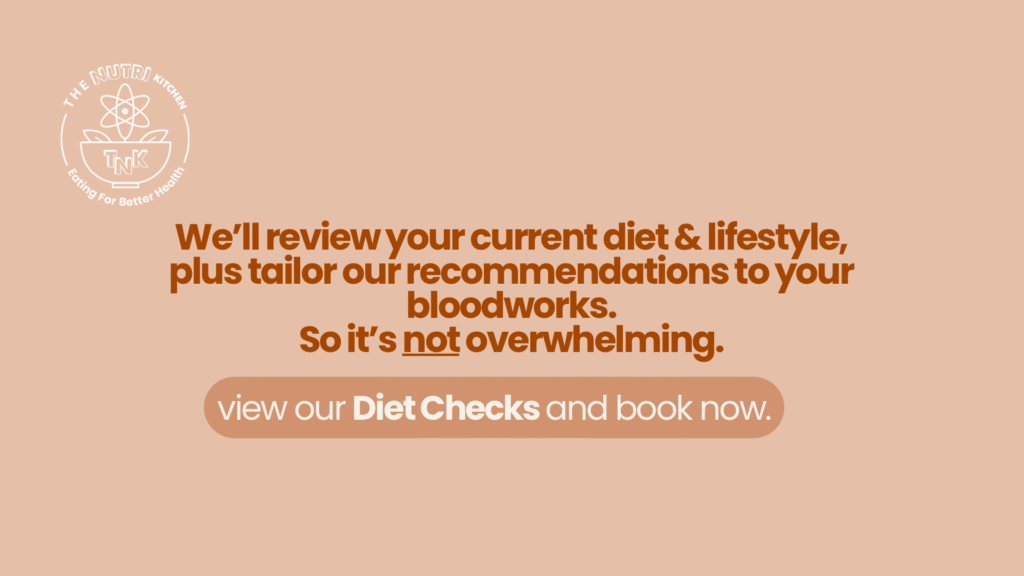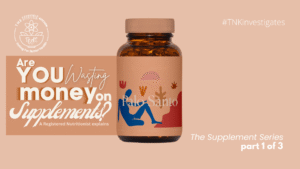Back in June, we explored whether supplements are really worth the money and how clever marketing can make us believe we need more than we actually do.
It’s now October, and with the seasons changing, many of us start to think about topping up with vitamins or immune-boosting tablets. But before you stock up for the colder months, it’s worth understanding what happens when we take more than our bodies really need. Because while supplements can play a helpful role, taking them in excess, or without proper guidance, can sometimes do more harm than good.
When ‘extra’ becomes excessive
Your body is clever. It usually only takes what it needs and gets rid of the rest; but that’s not always possible with every nutrient.
Your body stores fat-soluble vitamins like A, D, E, and K in its fat tissue, which means they can build up over time. Consistently taking high doses can lead to toxicity, this is when too much of a nutrient builds up in the body and starts causing harm, leading to tiredness, nausea, or, in severe cases, liver or bone problems.
According to Taylor and colleagues from the National Institutes of Health, found that too much vitamin D can cause hypercalcaemia (a build-up of calcium in the blood) which can actually make you feel sick, confused, or lead to kidney issues, when taken in large doses without medical supervision.
It’s also worth remembering that supplements don’t act in isolation. Some nutrients interact with others, changing how well your body absorbs them. For example, too much zinc can block copper absorption, and excess calcium can interfere with iron.
The problem with self-supplementing
Many people start supplements based on online trends or TikTok advice rather than proper testing. The risk here is twofold:
- You might be taking something you don’t need.
- You might be ignoring an underlying issue that you actually need to address through food, lifestyle, or medical support.
Feeling tired doesn’t always mean you’re low in iron — it might actually be due to a lack of sleep, stress, or even thyroid issues.
Taking an iron supplement unnecessarily can cause constipation, nausea, and, in severe cases, damage to organs such as the liver.
Loftfield et al. (2024) followed over 390,000 adults and found that taking a daily multivitamin did not reduce the risk of death from any cause. Similarly, Guallar and colleagues (2023) reported that multivitamins show little to no benefit in lowering the risk of chronic diseases.
In other words, feeling tired or run down doesn’t automatically mean you’re deficient and self-prescribing without testing can be unnecessary or even harmful. Sometimes it’s just that time of the month, or work has been stressful and feeling tired is a perfectly natural and normal body response.
Quality matters more than quantity
In the UK, the law classifies supplements as foods rather than medicines, so companies don’t have to put them through the strict safety checks and approval processes required for prescription drugs.
This looser regulation can lead to inaccurate dosages, low-quality ingredients, or unnecessary fillers.
The Department of Health and Social Care and the Food Standards Agency (FSA) note that supplement manufacturers are largely responsible for their own safety checks, as there are no mandatory upper limits for vitamins and minerals in the UK (Department of Health and Social Care, 2023). This self-regulation means that the strength and purity of products can vary widely between brands.
A review by Jones and colleagues (2022) highlighted that despite the UK supplement industry’s rapid growth, there is still “limited evidence of consistent quality control and product verification” among some high-street and online suppliers. Similarly, research from HFE (2023) found that many supplements available online were sold with bold or misleading health claims that lacked strong scientific evidence to support them.
If you do take supplements, it’s best to choose reputable UK brands that follow Good Manufacturing Practice (GMP) and are registered with professional bodies such as the Health Food Manufacturers’ Association (HFMA) or the Council for Responsible Nutrition UK (CRN UK). These organisations require higher standards of manufacturing and labelling, helping ensure that what’s written on the label matches what’s actually in the bottle.
Food first, supplements second
The most powerful way to get nutrients remains through real food. Whole foods provide not only vitamins and minerals but also fibre, antioxidants, and thousands of plant compounds that work together in ways a tablet simply can’t.
A study by Bleske et al. (2020) found that supplement users often believe they’re healthier, yet clinical data showed no measurable differences between supplement users and non-users. This shows how the perception of benefit doesn’t always match the evidence.
Think of supplements as a support system, not a substitute. They can help fill small gaps but can’t replace the balance, flavour, and natural synergy of a nourishing diet.
In our final blog post in this supplement series, we’ll be chatting about some of the most popular multivitamins on the market vs how they compare to real food, and what to look for if you do choose to take one.
When in doubt, test, don’t guess
Before starting any supplement, it’s worth checking your blood levels through your GP or a qualified health professional. That way, you’ll know what’s truly needed, in what dose, and for how long.
You can also track changes through follow-up tests rather than assuming a supplement is “working” based on how you feel.
Lazarus and colleagues (2020) found that people who took multivitamins often felt healthier, but objective health tests showed no real difference. It’s a clear reminder that feeling better doesn’t always mean the supplement is responsible.
TNK takeaway
Supplements can play a helpful role when used correctly, but when taken blindly or excessively, they can do more harm than good.
If you missed our earlier post: “Are You Wasting Your Money on Supplements?” it’s worth giving that a read too. Together, both articles offer a fuller picture: when supplements help, when they don’t, and when they might actually become harmful.
At The Nutri Kitchen, we always recommend a food-first approach: focusing on variety, balance, and long-term habits.
If you’re unsure where to start, speak with us at The Nutri Kitchen. We offer a free discovery call where we can chat through any concerns, review your test results or supplement use, and help you start building lasting, balanced habits that fit your lifestyle.
.



